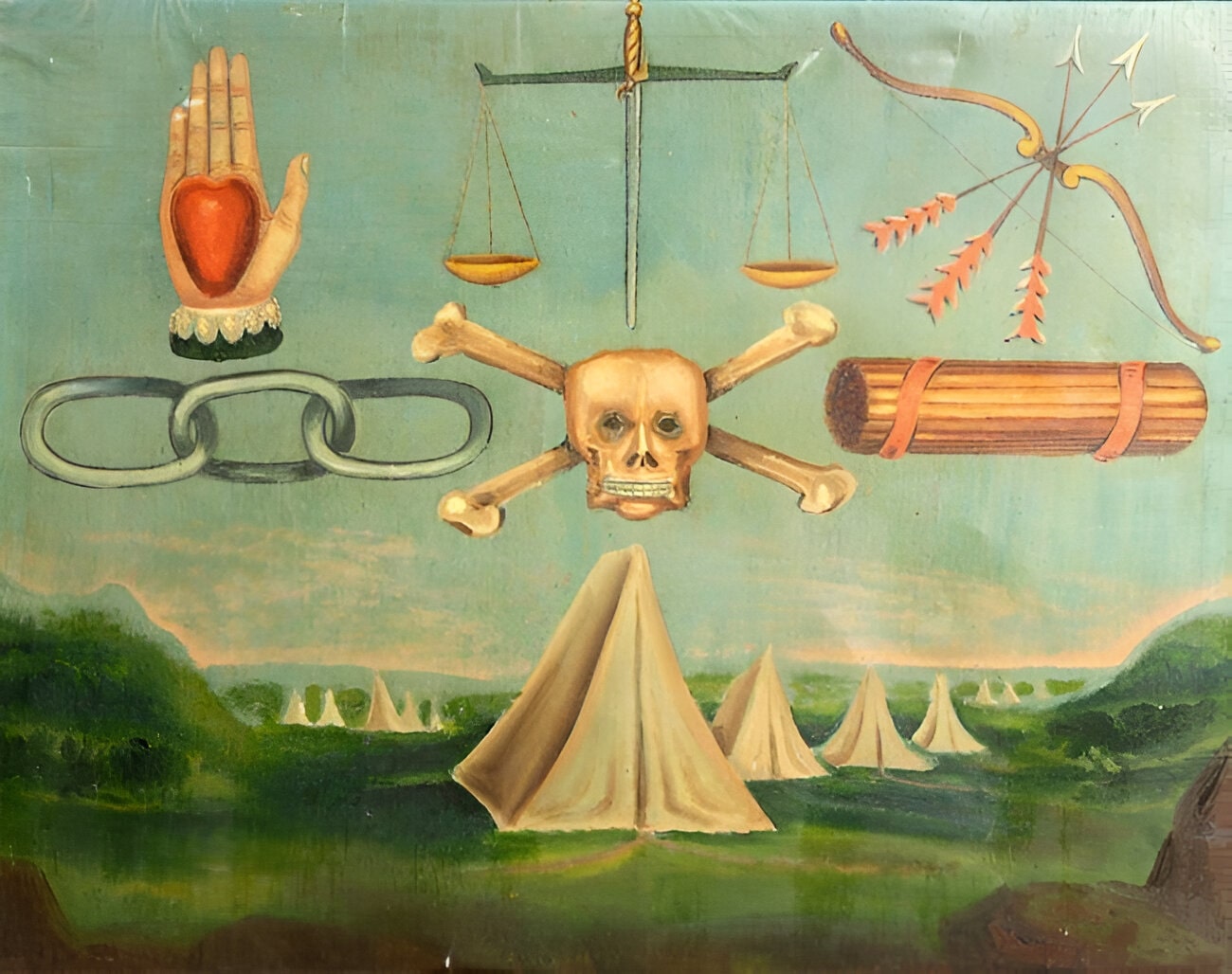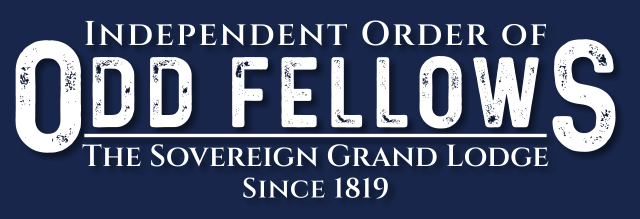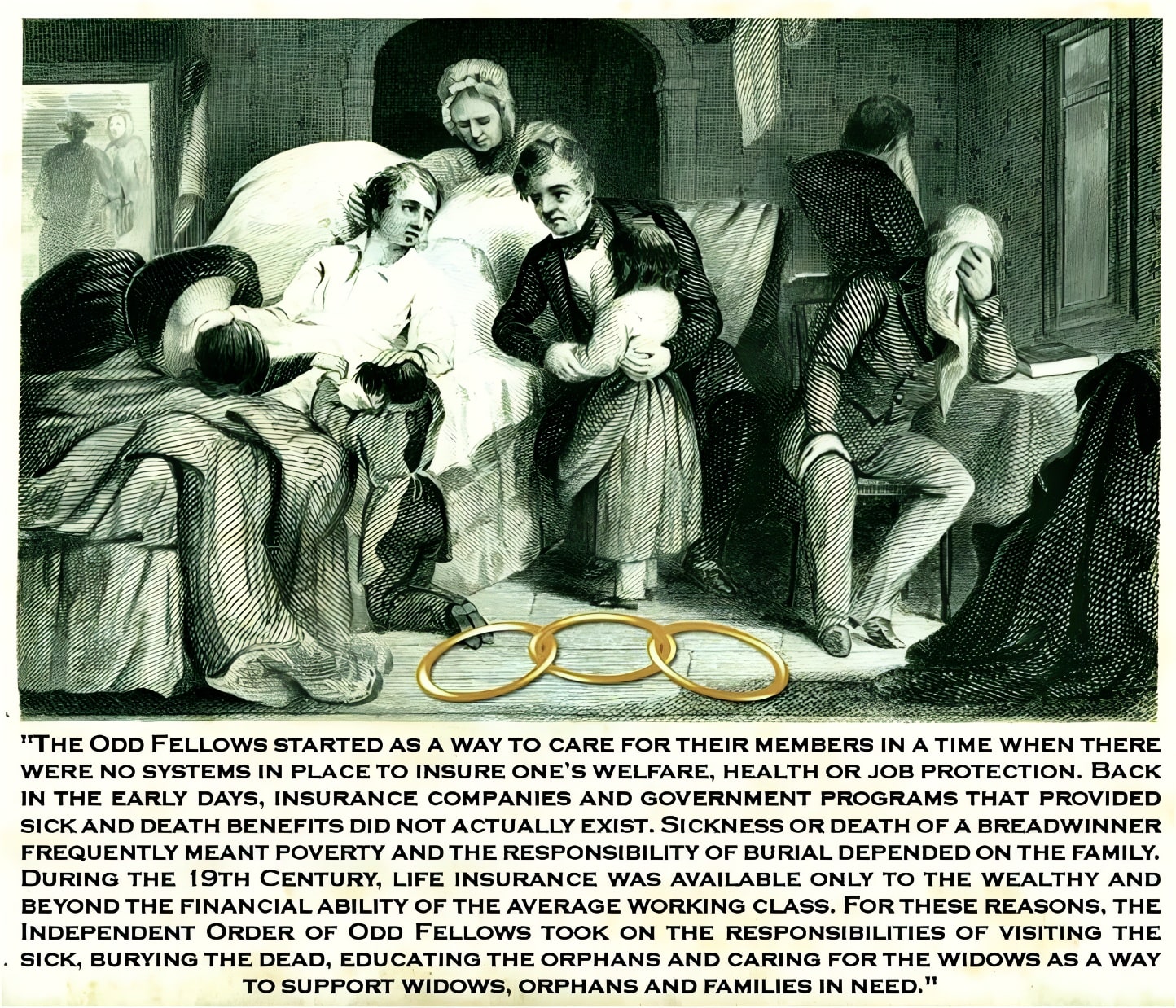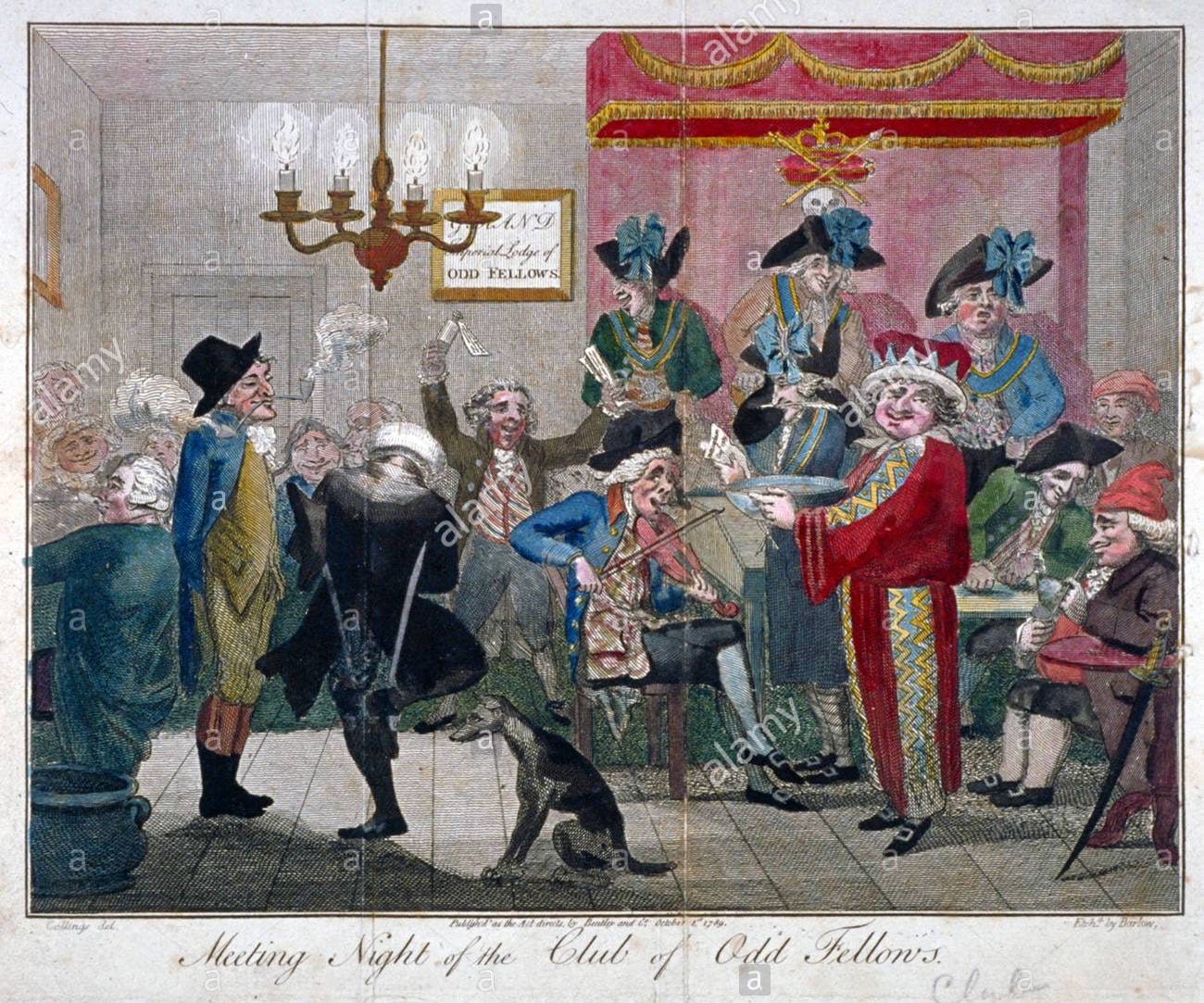
The History of
Odd Fellowship
Discover the rich history of Odd Fellowship, a fraternal order rooted in medieval guilds and thriving by the 1700s in England. Officially organized in North America on April 26, 1819, by Thomas Wildey in Baltimore, the Independent Order of Odd Fellows grew into a global community championing friendship, love, and truth. From our early days of mutual aid and to becoming fully co-ed in 2001, we continue our legacy of unity and service.
Odd Fellowship It’s History and Manual
The History and Manual of Odd Fellowship
By Theo. A. Ross
Below is a summery of the history of Odd Fellowship from Theo A. Ross's book, "Odd Fellowship It's History and Manual", published in 1900 and available on the Internet Archive or by download below.
The Founding of the IOOF in America
On a crisp spring evening in April 1819, Thomas Wildey, a blacksmith from England, gathered with a small group of men in Baltimore’s Seven Stars Tavern. Driven by the ideals of Odd Fellowship, a fraternal tradition rooted in mutual support among working men, Wildey founded Washington Lodge No. 1, the first American chapter of the Independent Order of Odd Fellows (IOOF). Guided by the principles of Friendship, Love, and Truth, this modest gathering sparked a movement that would spread across the nation, uniting men in a shared commitment to community and compassion.
In early 19th-century America, life was fraught with challenges—illness, poverty, and loss were constant threats. The Odd Fellows emerged as a beacon of hope, with members pledging to visit the sick, relieve the distressed, bury the dead, and educate orphans. This heartfelt oath, symbolized by the three-link chain of unity, defined the order’s mission. From Baltimore, lodges quickly spread to small towns, mill villages, and frontier settlements, attracting farmers, carpenters, shopkeepers, and laborers united by a common purpose of mutual aid and moral integrity.
Growth and Independence of the IOOF
By 1842, the American Odd Fellows sought independence from England’s Manchester Unity, securing a charter through the Grand Lodge of Maryland. This bold move fueled rapid expansion, with lodges flourishing across the country—from New York’s bustling docks to the Midwest’s open plains. Meeting halls became centers of community life, where rituals and degrees instilled lessons of loyalty, sacrifice, and service, forging lifelong bonds among members. Theo A. Ross’s 1888 book, Odd-Fellowship: Its History and Manual, captures this vibrant era, detailing the order’s structure, from local lodges to The Sovereign Grand Lodge, and the significance of its regalia and ceremonies.
In 1851, the IOOF broke new ground by establishing the Daughters of Rebekah, welcoming women into its mission of service. Rebekahs worked alongside Odd Fellows to care for orphans, widows, and communities, building hospitals and providing aid where governments fell short. Ross’s book highlights the order’s inclusivity, free of religious or political ties, and its global reach, with lodges established worldwide by the late 19th century. Through charity and civic responsibility, the IOOF became a moral and social force, touching lives far beyond its membership.
The Enduring Legacy of the IOOF
The Independent Order of Odd Fellows remains a vital force today, continuing its mission of compassion and community service. From funding scholarships to supporting charities, Odd Fellows and Rebekahs uphold the values established by Thomas Wildey in 1819. Ross’s Odd-Fellowship is both a historical record and a call to action, celebrating a brotherhood that blends fellowship with philanthropy. The IOOF’s legacy, built on acts of kindness and unity, spans generations and continents, proving that Friendship, Love, and Truth are timeless ideals. In every lodge and every act of service, the IOOF carries forward a vision of a world where no one faces life’s challenges alone, a testament to the enduring power of human connection.
SECTIONS MENU

Kudos:
This website is administered and maintained by The Sovereign Grand Lodge Communications Committee.


